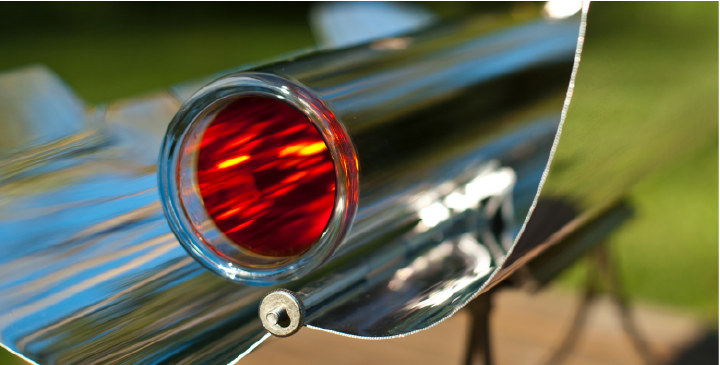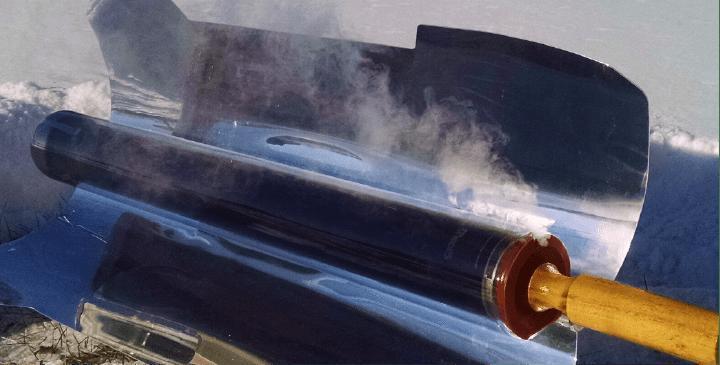Are there such things as all-season solar cookers, or do they only work in the summer during periods of maximum sun exposure? In the other three season of the year, we’re often asked how exactly is it that these stoves can cook so effectively, even in the cold. To answer this and other questions, we’ve created a handy FAQ.
But first, a general overview. All-season solar cookers can work just fine in the winter, but it takes some ingenuity to achieve the same results as summer. As long as you have clear, bright sunshine, then you can make it work; in fact, some winter days can be bright than summer days. The only thing you really need to do differently is turn your all-season solar cooker more frequently to track the sun because it moves more quickly across the sky when it's low on the southern horizon.
How do solar vacuum tubes work?
Air is pulled out of a double-layered borosilicate glass tube and permanently sealed, forming a vacuum. This highly specialized process results in some unique properties, the most important being thermal insulation. Light can be absorbed by the internal layer of the tube and stored as heat. Without air to transfer heat from the inside of the tube to the outside, the vacuum provides near perfect insulation from the cold.
Do all-season solar cookers work during the winter?
Yes, very well in fact! The GoSun Sport has been shown to cook hot meals at temperatures below 10°F (-12°C) with no problem aside from the time required to preheat. Besides, outside temperatures are not the important factor here; rather, the quality of the solar cooker and ability to utilize sunlight.
How much longer does the GoSun Cooking Technology take to cook during the winter?
Cook times during the winter may increase your cooking time by as much as 15 minutes, while the tray and tube come to temperature. Once this point is reached the stove cooks as quickly as a warm summer day.

Why does the all-season solar cooker GoSun cook faster on some winter days than a summer day?
There are two main reasons solar cooking during the winter can lead to faster cook times: air quality and reflection.
Air Quality: As any Winter sportsman can attest to, sunburn is not exclusive to warm weather. In fact, cold mountain air holding little moisture to diffuse the light, makes for direct and intense sunlight. Put simply, the thinner the air, the stronger the power of the sunlight.
Reflection: When cooking on a snow covered slope, particularly with the low angle light of dawn and dusk, the snow often acts as a reflector, multiplying the total amount of light entering the stove. More light means faster meals.
What techniques can be used to more easily cook at winter?
Open Sparingly: Opening the stove becomes more costly as the environment becomes colder. Just set a timer and check when the recipe should be approaching completion.
Use Steam As An Indicator: To check the status of your food without opening, watch for steam. Steam rendering from the GoSun Sport typical indicates food is near completion. This is especially the case for vegetables and bread.
Store Your Stove Indoors: Skip an extended preheating cycle by simply keeping you stove inside rather than in the garage.
Stay Inside: Have a sunny window? You’re in luck! Just place your stove facing outward. It may take longer due to some window’s UV coatings… but then again you’re inside.
With GoSun, you can start cooking with the Sun year round, anywhere the Sun shines, regardless of the cold!


